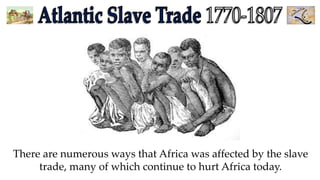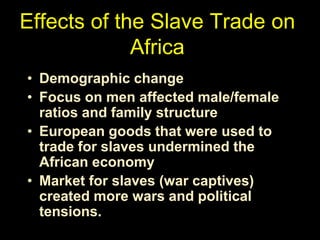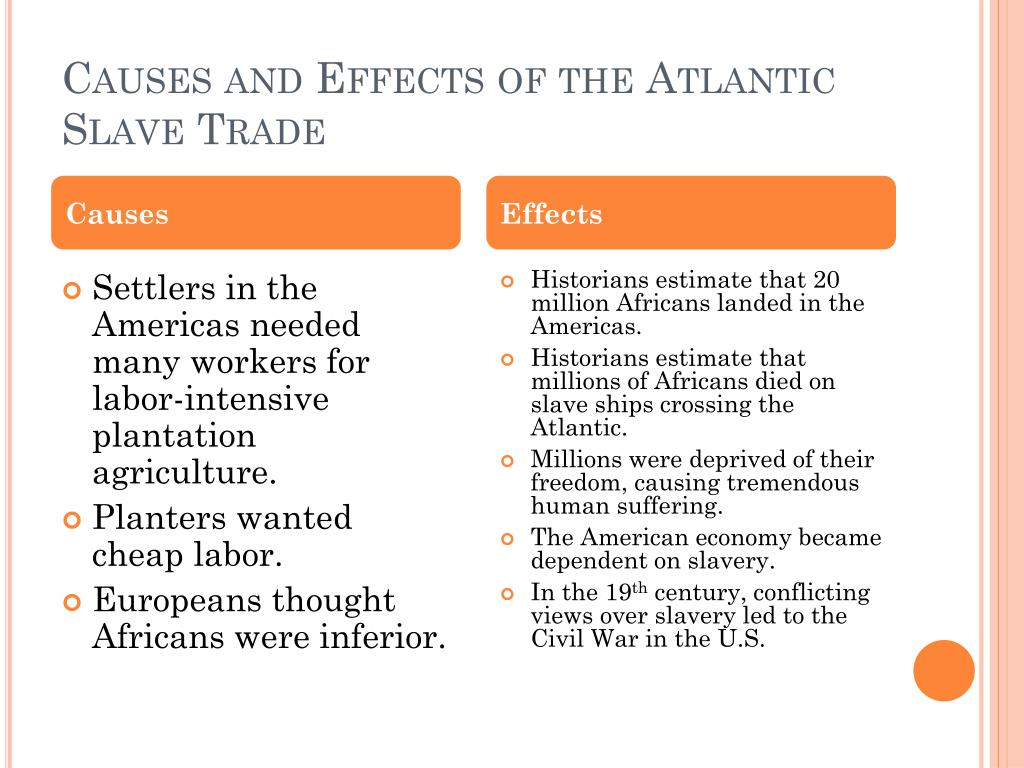The transatlantic slave trade, also known as the Middle Passage, was a horrific chapter in human history that had far-reaching and long-lasting effects on both Africa and the Americas. It is estimated that between 1525 and 1866, around 12.5 million African men, women, and children were forcibly taken from their homes and shipped across the Atlantic Ocean to be sold into slavery in the New World. This tragic event not only had devastating consequences for the individuals and families directly affected by it, but it also had significant impacts on the economies, cultures, and societies of both Africa and the Americas.
One of the most significant effects of the slave trade was the devastating loss of human life and the disruption of African societies. Many slaves died during the Middle Passage due to the harsh conditions of the voyage, which often lasted for months. Those who survived the journey were often sold into slavery and separated from their families and communities, never to see them again. The slave trade also had economic consequences for Africa, as it drained the continent of its most valuable resource: its people. The loss of so many able-bodied workers and intellectuals had a long-term impact on Africa's economic and social development.
In the Americas, the slave trade had a profound impact on the economies of the regions where slavery was practiced. The slave trade provided a cheap source of labor for the growing plantation economies of the Caribbean, South America, and the southern United States. The profits from the slave trade and from the production of slave-grown crops such as sugar, tobacco, and cotton helped fuel the Industrial Revolution in Europe and North America. However, this prosperity was built on the backs of enslaved people who were treated as nothing more than property and subjected to brutal treatment and abuse.
The slave trade also had significant cultural and social consequences for both Africa and the Americas. In Africa, the slave trade led to the erosion of traditional societies and cultural practices, as people were forcibly taken from their homes and forced to adopt new cultures and customs in the places where they were enslaved. In the Americas, the slave trade contributed to the development of a distinct African-American culture that blended elements of African and European cultures. However, this culture was often suppressed and marginalized by the dominant white society, and African Americans were denied basic rights and opportunities for centuries.
The legacy of the slave trade continues to be felt today, as the impacts of this horrific event are still being felt in both Africa and the Americas. In Africa, the loss of so many people and the disruption of traditional societies has had long-term consequences for the continent's economic and social development. In the Americas, the legacy of slavery and racial discrimination has left a lasting impact on the lives of African Americans and other people of color, and the struggle for racial justice and equality continues to this day.
In conclusion, the transatlantic slave trade was a tragic and devastating event that had far-reaching and long-lasting effects on both Africa and the Americas. Its legacy continues to be felt today, and it is important that we remember and learn from this dark chapter in human history so that we can work towards a more just and equitable society for all people.







